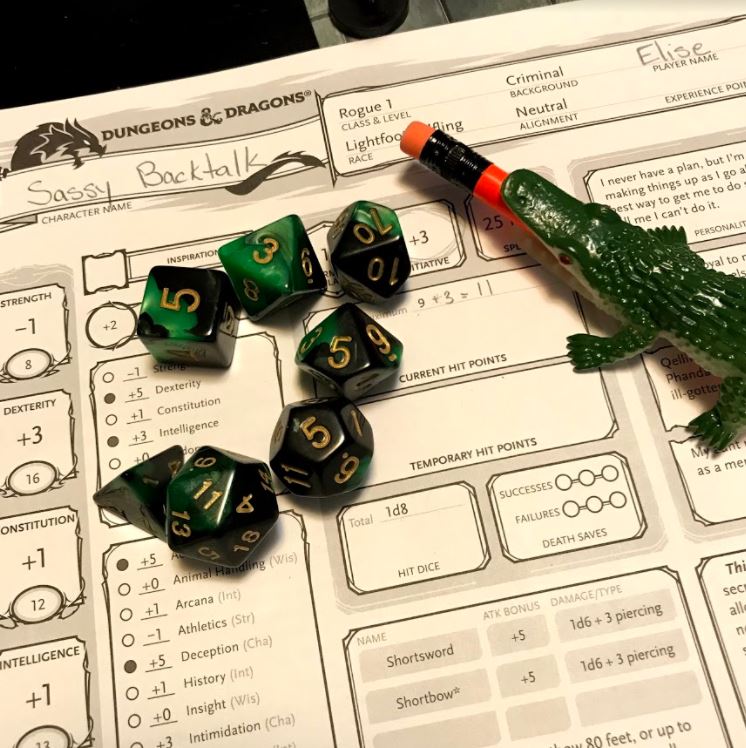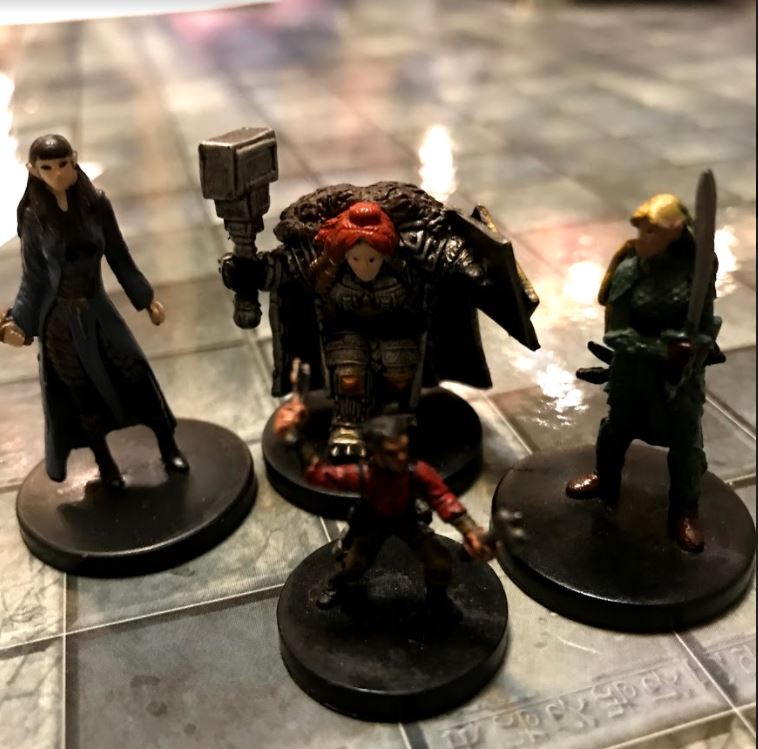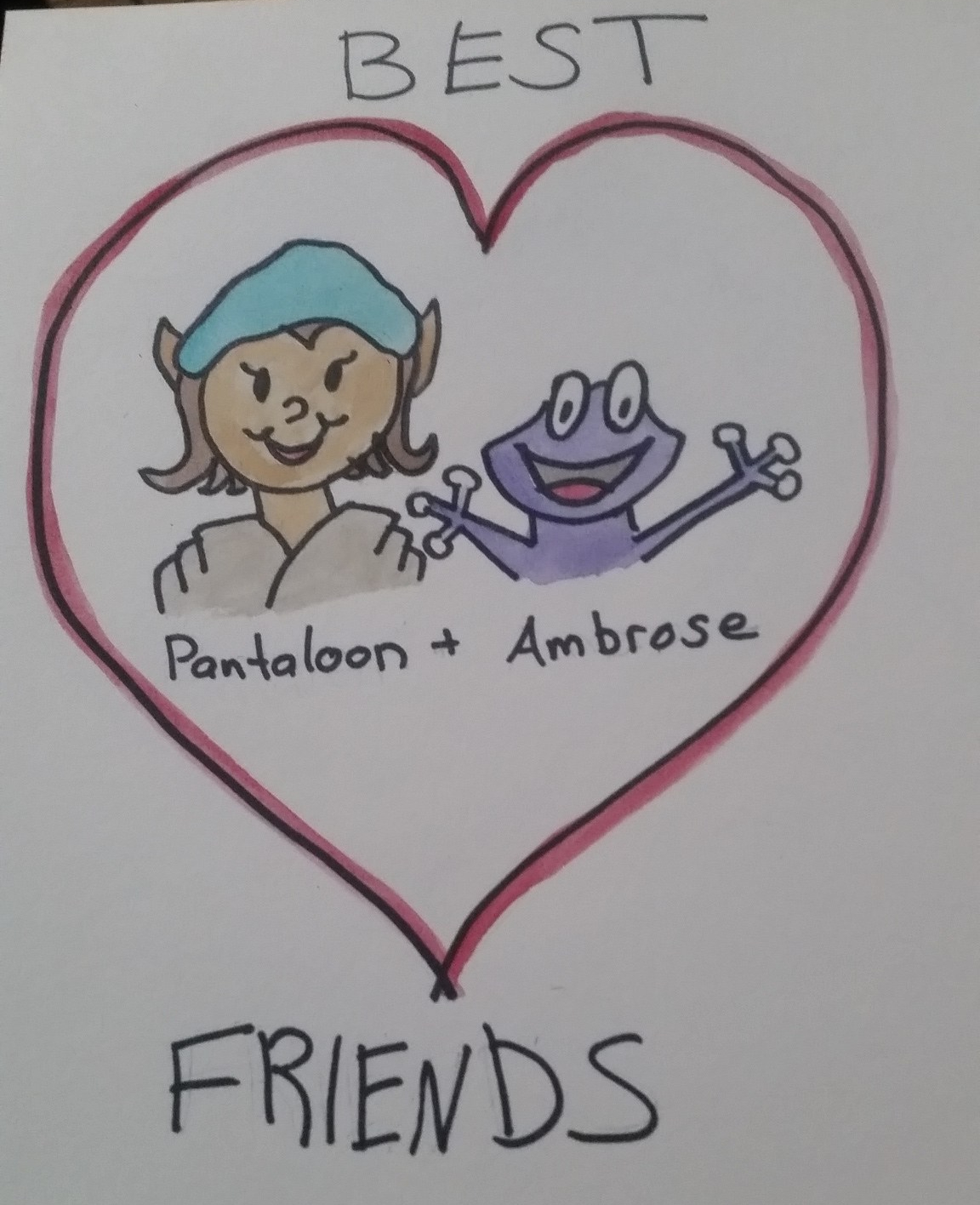Lessons Learned by a D&D Newbie

This winter the other Ladies and I took a huge step and started our very own monthly game of Dungeons and Dragons. For quite some time, I personally had been avoiding tabletop RPGs for a couple of reasons. The most pressing of those reasons being that I was nervous about playing as a newbie. I was concerned that playing would feel like a struggle as I attempted to juggle both the mechanics of the gameplay with actual improvisation and role-playing. It felt like too much at once and that I was going to be a burden to the DM and other players.
Several sessions and a second game group addition later, I am happy to report that I'm now addicted to this game. I spend a good deal of time working on my character, reading about the game rules, and even listening and watching other people's games via podcasts and YouTube. And yes, I'm starting to get into the miniatures as well.
If I'm to be completely honest, I wish I had played when I was first asked. If I had, I might not have missed out on other opportunities to branch out and play other games. The good news is that if you also find yourself curious but on the fence about taking that dive into the world of D&D, I'm happy to share the lessons I learned. You might also find that there's a lot of love about this game.
Lesson #1: The right DM
Your Dungeon Master (or DM) sets the tone for the game. This person's job is to lead you through the story, challenge you, guide you, and at times even get you into some serious trouble. When you have someone who is so in control of the direction of your game, you want to make sure that person is both someone you trust and a person who has the interest of their players at heart. Both of my current D&D campaigns have amazing DMs with different strengths. One is extremely gifted at improv while at the same time is a patient and clear teacher as many of us navigate the gameplay for the first time. The other, while also amazing at improv, wants the game to be immersive and directed by the players as much as possible. This leads to a lot of hilarious situations and unexpected twists.

The point is that both of these DMs have one very important trait in common. Neither of them walks into the room with a specific agenda and both of them put the needs of the players first. The idea is to have fun, not conduct an experiment in power play. I can't stress how important this is for the newbie player. Newbies (or even more experienced players for that matter) aren't going to stay around if there is tension or their character spends most of the game frozen or unconscious.
Lesson #2: The right team
While the DM is the leader, they aren't the only one who can affect the overall feeling of the game. If you're going to start playing a role-playing game for the first time, there is a very good chance you're going to find yourself getting stuck, asking a lot of questions, and needing space to explore your options. So while I'm not saying that newbies should only play with other newbies, I'm suggesting that you make sure that the other members of your party are patient and understand that the success of one character often means success for everyone. You're in it together, and things are often more fun when you can all joke around and bounce ideas off one another. A simple comment from one person can spark a brilliant idea in someone else.
Lesson #3: It's ok to bring in other elements you love
Each game and group you play with can be completely different. There is no rule mandating that you need to play late into the night or can't take breaks. Both of my games have become something more akin to Brunches and Dragons. We take time to chat before playing. We discuss elements from the last game and spend some friendly time catching up with each other before diving in. The food is yummy, cocktails are themed around the game, and some of us even wear elements of our characters blended into our outfits. To make the games even more immersive, we use more than just D&D figures. Our bard plays lute music on his phone, our cleric takes notes in form of amazing drawings in her notebook, one DM uses soundscapes and props, while my other DM other actually creates different voices and accents for the characters we talk to.

Lesson #4: It's ok to be you
Creating a character can be a challenge. It's natural to want to put elements of yourself in the character because it's familiar and can feel more comfortable. This is especially true when your character has to make those hard choices. It's much easier to think about what you would want to do rather than what your character actually would do. At first, I was worried this was lazy storytelling on my end but then realized that it was ok to ease into things. Start how you want to start and remember that it's just a game. Oh, and if your DM or group have problems with this, please refer back to numbers 1 and 2.
Lesson #5: Dive in as deep as you want
Some of us spend time working on our backstories, while others kinda wing it based on their alignment and a few story elements. So long as the game keeps moving and everyone is having a good time, not everyone in the group needs to write 5 paragraphs on why their character is afraid of chickens and refuses to eat eggs. Not everyone is there for the storytelling, and not everyone is there for just the strategy elements either. For most, it's a mix of both, so it's not a good idea to make assumptions or think someone is slacking off if they don't submit a family tree to the DM.
I personally have been spending a lot of time working on my own characters and their relationships with others. I find this not only fun but also extremely helpful for me when playing. If I know a character, I care about them more. This results in feeling more engagement during the gameplay.
It's also a great chance to be a bit silly and share things with your friends/other players. For instance, my druid elf character can be a bit flighty and off-kilter. Recently I decided that since elves don't need to sleep, she spends a lot of her party's rest periods making drawings of herself and her friends. What she lacks in skill, she makes up for in enthusiasm.

The point that I've been taking forever to make can be boiled down to a very simple takeaway. If D&D sounds like something you want to try, there are a ton of ways to create a comfortable space for newbies. If you play with the right people, you can build in the freedom to explore the aspects of the game that speak to you the most. Hey, everyone had to learn how to play at some point, right?
If you're looking for a more concrete opportunity to try some tabletop RPG playing in an open and friendly environment, I would recommend joining us at Comicazi for the next ELS Game Day event. On April 29th, they will be highlighting RPGs specifically, giving both new and more seasoned women and girl gamers the chance to explore some more unique game options, including a bunch created by women as well. More info will be available on the Ladies of Comicazi Facebook page as we get closer to the event.
